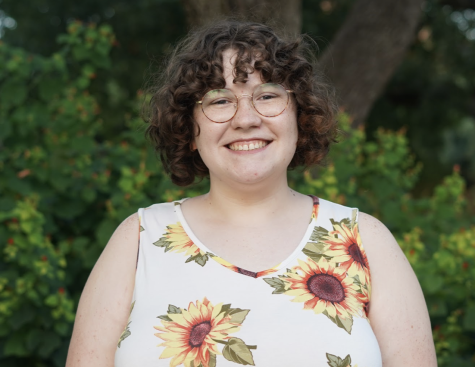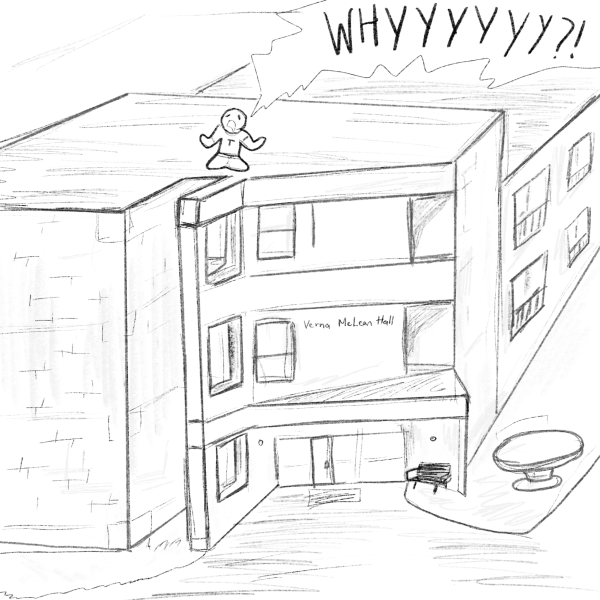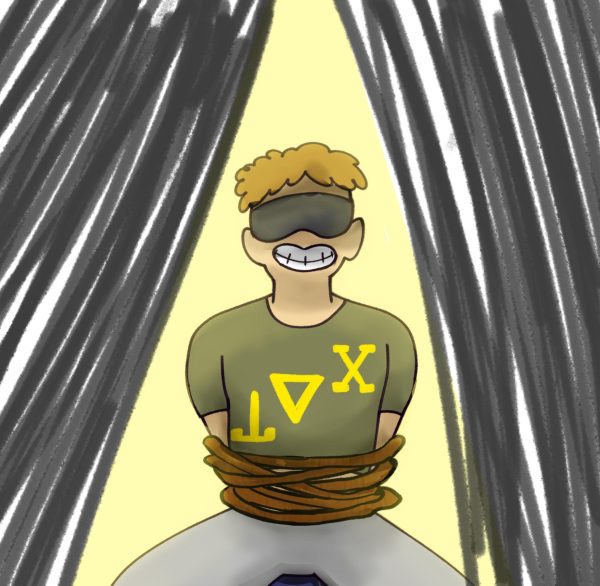Guest Column: Tigers Against Aramark: The Next Step in Re-Imagining Dining On-Campus
Written by: Tigers Against Aramark Members (Rachel Poovathoor, Brandon Niday, Joy Patterson, Ani Siva)
If you’re new to campus, you may not have heard of us.
In the summer of 2020, Tigers Against Aramark was born out of frustration, spirit, and determination to fight against our University’s complicity in harmful, racist systems, namely the prison-industrial complex. After months of grueling research meetings held via Zoom, Tigers Against Aramark published our calls demanding the cessation of the Aramark contract with the release of our research report along with two petitions, which garnered over 1,000 signatures from students and 33 student organizations.
First, I will provide a glimpse of the research that presents the case against Aramark, which we compiled in our report. Second, I will review our coalition’s progress to date. Finally, I will show how you, as a Trinity student can contribute to changing the way our dining services look on-campus.
A Brief Review of the Report
Black philosopher, activist, and professor Angela Davis, PhD defines the prison-industrial complex (PIC) as “the extent to which prison building and operation… attract[s] vast amounts of capital from the construction industry to food and healthcare provision,” highlighting the rise of the prison industry and its newfound corporate interests. Such actions have been cited by activists, scholars, incarcerated people, and supporters of the Black Lives Matter movement as a legacy of slavery in this country.
Aramark is a for-profit private dining company that contracts primarily with college campuses and prisons. Prisons in the U.S. function like a business as they aim to maximize profits made off of inmates by exploiting them for labor and providing them with measly compensation (Requarth, 2019; Bowling, 2013). Fundamentally, private food companies such as Aramark are contracted with prisons, because they promise to cut costs. Companies like Aramark are only able to offer these “competitive” prices by reducing the amount of money spent per prisoner, usually through serving lower quality meals, and by paying their employees (which sometimes include prisoners themselves) less. For example, in Michigan, unionized corrections workers earned $15 to $25 an hour, while the Aramark employees who replaced them were paid as little as $11 an hour (Requarth, 2019). The business of prison operation rewards organizations that can cut costs the most, leaving the well-being of incarcerated individuals and employees by the wayside.
It’s disheartening to us, as students, to see our University verbalize the need to “urgently incorporat[e] anti-racist commitments and actions into Trinity University” while simultaneously continuing to allow Aramark to remain on campus despite their numerous abuses and violations against Black, Indigenous, and other communities of color. Business Insider reported that 90% of Generation Z—those aged 13 to 25—supports the Black Lives Matter movement (Davis, 2020). This generation includes future prospective students and young alumni of Trinity University. By continuing this contract with Aramark, knowing the full range of their transgressions against BIPOC in America, Trinity risks alienating prospective students and losing donations and support from young alumni. Maintaining this partnership will create an unnecessary obstacle in the University’s pursuit of becoming one of the Top 25 liberal arts colleges in the nation. We ask the University to see this as an opportunity: to practice “radical empathy” with Black, Indigenous, and other people of color across the country, and to make a name for itself as an institution that recognizes injustice and seeks out innovative solutions in pursuit of diversity, equity, and inclusion. It is time we acknowledge the institution’s power to emphatically take a stance against systemic inequality. As a privileged University, we must ask ourselves: “Will we be the type of University that proclaims pithy sayings at commencement ceremonies and in classrooms? Or will we have the integrity and courage to act on our convictions?”
This is a brief overview of our report. We encourage you to read it in full. Thank you to all of the writers of this report for your dedication and hard work. This would not have been possible without you.
Our Solution and Progress
So what’s our proposed solution? In our report, we discussed how, in 2017, San Antonio became one of only two cities in the United States to be named a UNESCO Creative City of Gastronomy. This designation raises the question: how can we, as a University, be celebrating our city’s culinary and cultural heritage? Opportunities for innovative partnerships abound. The Culinary Institute of America, programs that support local food entrepreneurs (such as LaunchSA’s Break Fast and Launch), and a growing number of urban farm communities are at our fingertips. Partnering with these local community initiatives could also be used to aid experiential learning for students.
Since Fall of 2020, TAA has been meeting with Trinity leadership to brainstorm this dining solution which is what we call “The Local, Self-Dining Option.” Our meetings with administration came after a momentous SGA meeting in October 2020 which had over 100 Trinity community members dial in from all parts of the nation and globe. At this SGA meeting, we confronted Aramark executives on their operating practices and business ethics, which were called into question by our report. After this meeting, it was clear to the Trinity community that Aramark did not take students or our concerns seriously and was unconcerned with the impacts of their business model, and therefore is unaligned with Trinity’s stated goals of “urgently incorporating anti-racist commitments and actions.”
In April of 2021, TAA presented to the Executive Leadership Team to request funding for a feasibility study. We got the support of the ELT immediately, and the study is currently ongoing. In essence, the study, which is conducted by a third-party consultant chosen by the Trinity administration, will evaluate the logistic and financial viability of a self-operating dining service. The study will also consider how different dining options will influence Trinity’s future as an elite institution. They will gather information through a variety of meetings with students, administration, and Aramark employees. The consultant is set to meet with TAA and SGA representatives on Friday, October 29th.
We Need Your Help
Here’s where we need your help. We’d like for you to fill out this survey of how you feel about Aramark (including your perspective on their business practices writ large and their on-campus dining services) by Wednesday, October 27th. We will compile these responses and share them with the consultant to give them a better understanding of campus opinion.
It is important that every single member of the Trinity community fill out this survey to express their opinions about Aramark. Trinity University’s contract with Aramark will be up for renewal or expiration in 2023, and the feasibility study is pivotal in determining the contract’s outcome. This is our one chance—we cannot afford to waste it.
Link to padlet here. Link to Google Form here.

I'm a senior Computer Science major and a Classical Studies minor from Newton, North Carolina with a passion for art. I also work at the Center for Experiential...





